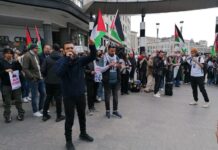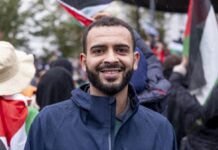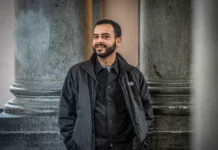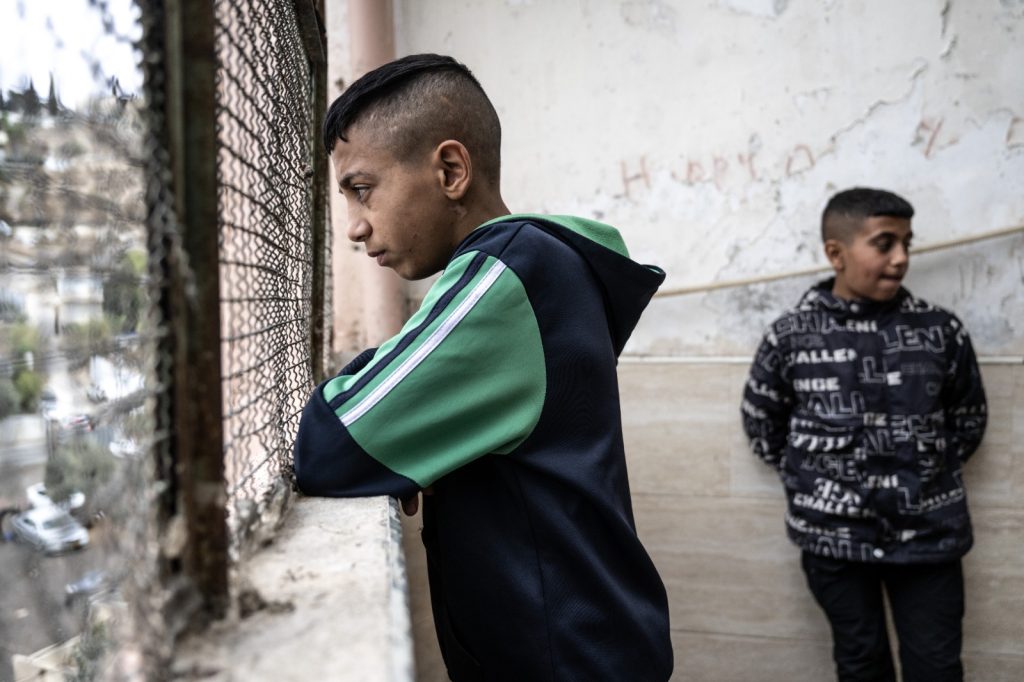
On Sunday, 1 December 2024, 14-year-old Palestinian Jerusalemite boy Ayham al-Salaymeh entered Zionist prisons for a year-long sentence imposed upon him by occupation courts, becoming the youngest Palestinian prisoner in the occupation prisons. His father, Nawaf al-Salaymeh, documented the process extensively; his son, Ayham, has already spent 14 months in house arrest.
Ayham was only 12 years old when he was seized by occupation soldiers and first detained with his brothers and cousins, Mustafa, Ahmed, Moataz and Mohammed, all from Silwan in occupied Jerusalem, in January 2023. Several months later, US and fellow imperialist-backed Zionist occupation forces invaded Ayham’s family home in the early pre-dawn hours of 24 May 2023, ransacking his belongings as his father filmed. They abducted Ayham, his older brother Ahmed, and his cousins Mohammed and Moataz.
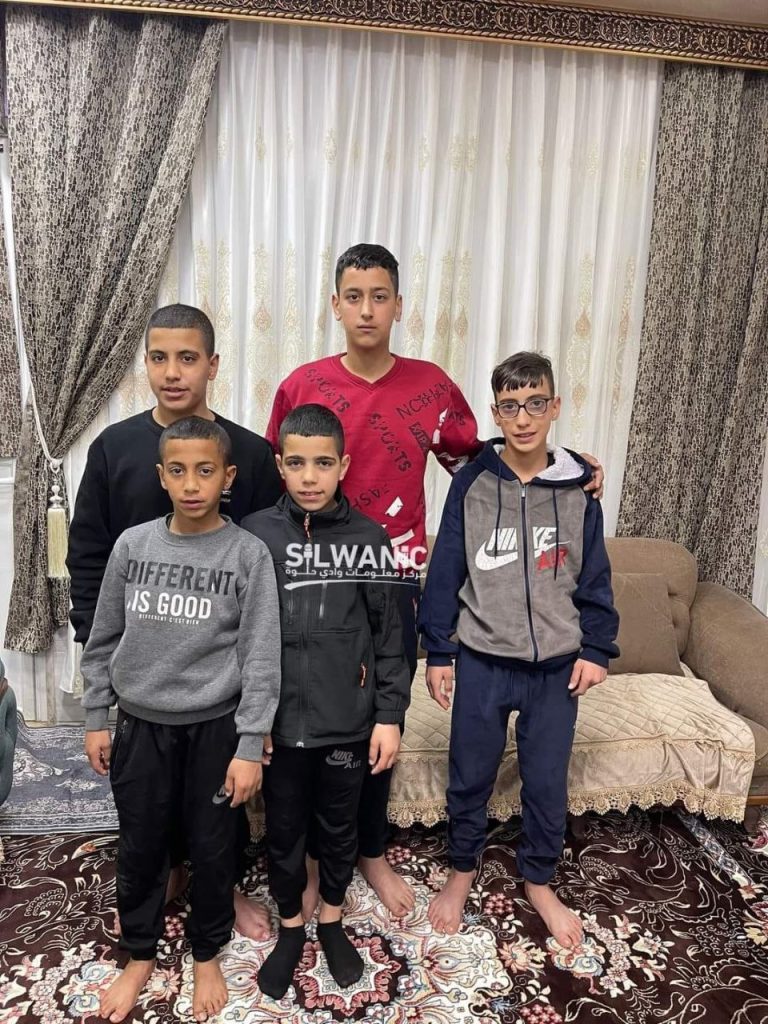
He was ordered to house arrest, a common form of detention and repression used by the Zionist regime, particularly against both women and children from Jerusalem and occupied Palestine ’48. In fact, house arrest against Palestinian children is a form of detention and arrest against the entire family, particularly Palestinian mothers, as the child is not allowed to leave the home and must constantly be accompanied by a specified adult at all times. This often means that Palestinian family members, especially mothers, must leave their jobs in order to accompany their detained child at all times, causing a severe financial blow to the family as well. Children held under house arrest are isolated from their loved ones, friends and community, denied access to school and education and prevented from participating in family events, attending mosque or church, play outdoor sports (such as football, which Ayham loves) and, in many cases, access to the internet or social media. The latter is a particularly common restriction imposed upon adult Palestinians from occupied Palestine ’48 subjected to house arrest, in an effort to prevent their experience from being documented and shared. Ahmed, Ayham’s brother, was imprisoned for four months and released in the prisoner exchange in November 2023 secured by the Palestinian resistance in Gaza.
At the time, as a 14-year-old, he could not be imprisoned; however, as part of a wide array of fascist laws targeting Palestinians, in November 2024, the occupation regime adopted a new law allowing for Palestinian children under 14 to be imprisoned in the Zionist military jails.
Nawaf, Ayham’s father, said in an interview with Arab48: “My son Ayham will be the youngest prisoner inside the prison, and my son Ahmed was the youngest prisoner, and 30 years ago I was the youngest prisoner inside the prison.”
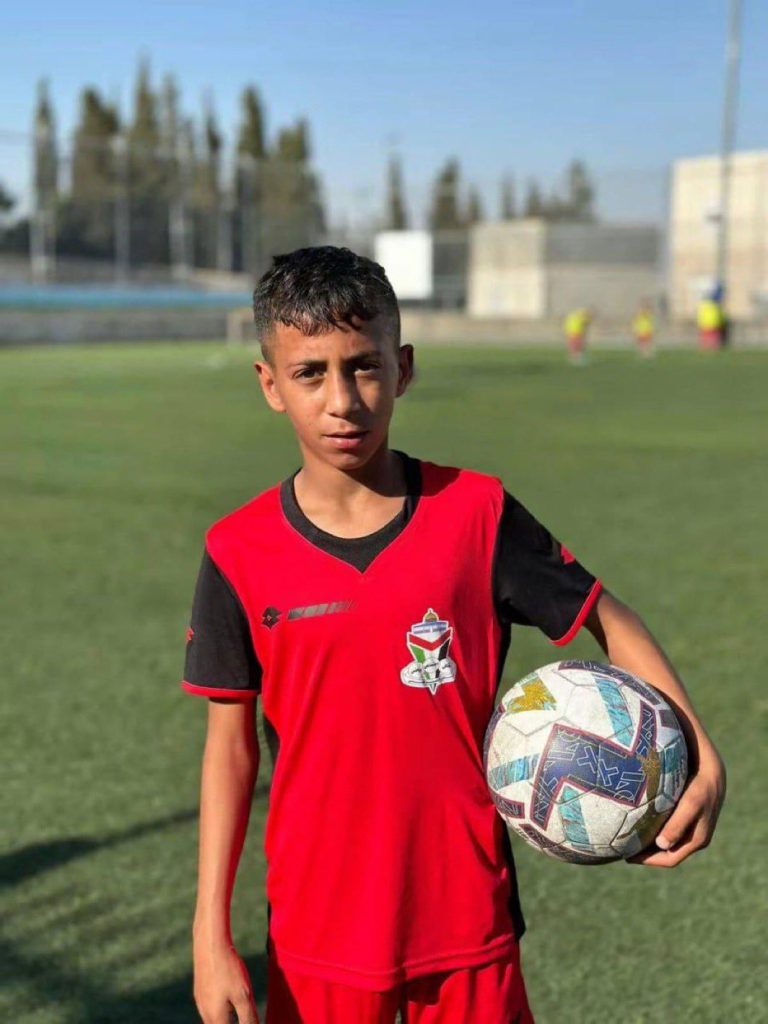
There are currently at least 270 Palestinian children held in Zionist prisons, with 100 of them jailed without charge or trial under “administrative detention;” however, this number does not take into account the Palestinian children held under house arrest, rendering their experience uncounted and undocumented. Many more Palestinian children than are ordered to administrative detention or brought before an occupation civil or military court are abducted by occupation forces, subjected to solitary confinement, beaten, abused and tortured by occupation soldiers, subjected to military/harsh interrogation, threatened with their own life and those of their families, and then released or ordered to house arrest.
Nevertheless, the Zionist regime continued to pursue additional prison time for Ayham, especially once he turned 14 years old, initially demanding 35 months in prison for the boy, allegedly for throwing stones at settlers. The charge of throwing stones at settlers is one of the most common charges used against Palestinian children by the occupation regime, even as the iconic image of a Palestinian boy, Faris Odeh, throwing stones at tanks during the Al-Aqsa Intifada in 2000 has become a representative symbol of the popular Palestinian resistance. In September, he was ordered to 12 months of imprisonment in Zionist jails — following 14 months of house arrest — an order upheld in November.
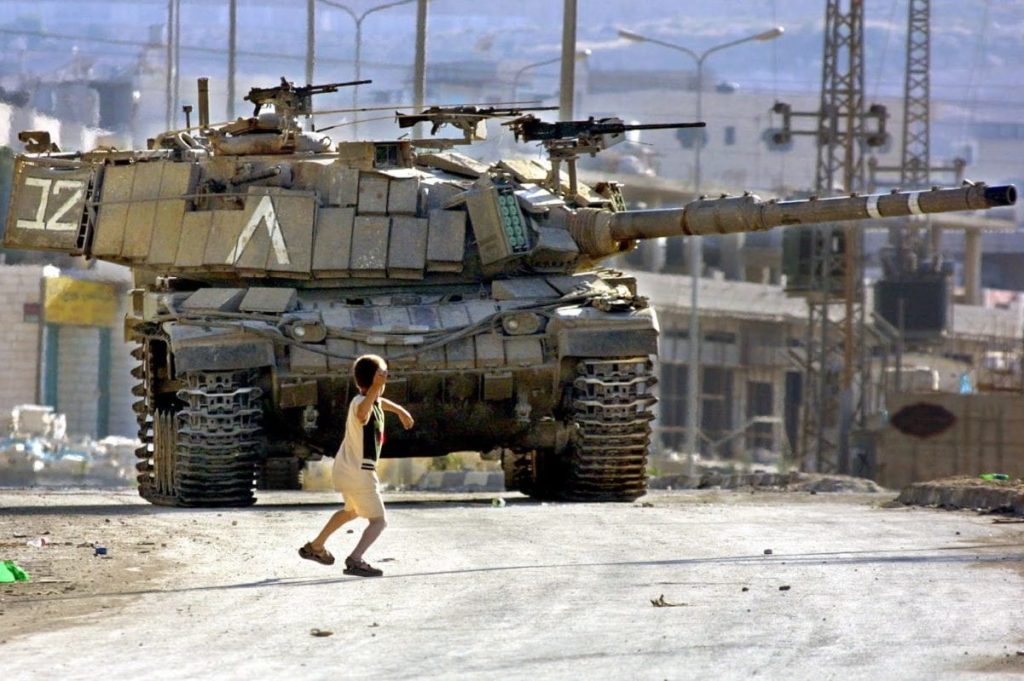
The imprisonment of Palestinian children is part and parcel of the war on Palestinian childhood, horrifically illustrated by the mass slaughter of over 17,000 Palestinian children as part of the Zionist genocide in Gaza, often with US-, German-, Canadian-, British- or French-made or funded weaponry.
Ayham’s father, Nawaf, spoke in Arab48 about his concern for his son, particularly amid the extensive reports of mistreatment, abuse, starvation, torture and systematic medical neglect directed at the over 10,200 Palestinian prisoners in Zionist jails.
“We were not surprised by the decision because we have been under occupation since 1948. I was a child when I was first arrested and most of my family members were arrested under flimsy pretexts,” Nawaf said. “Therefore, the prison decisions are not surprising to us, but the bigger shock is the conditions of the prisons. You do not know anything about the detainee, neither where he is being held nor any other details, and I will not be able to provide him with clothes or money, or communicate with him…For a whole year, I will miss him completely and only the memories will remain. This is a source of fear and anxiety for me, because my son is a child and even his size is smaller than his age, and I do not know what his situation will be like in prison. We see prisoners entering weighing 80 kilograms and leaving weighing 50 to 60 kilograms, after two or three months in prison. My son Ayham weighs 30 kilograms, so how much will he weigh after a year in prison? Will he be released or not?”
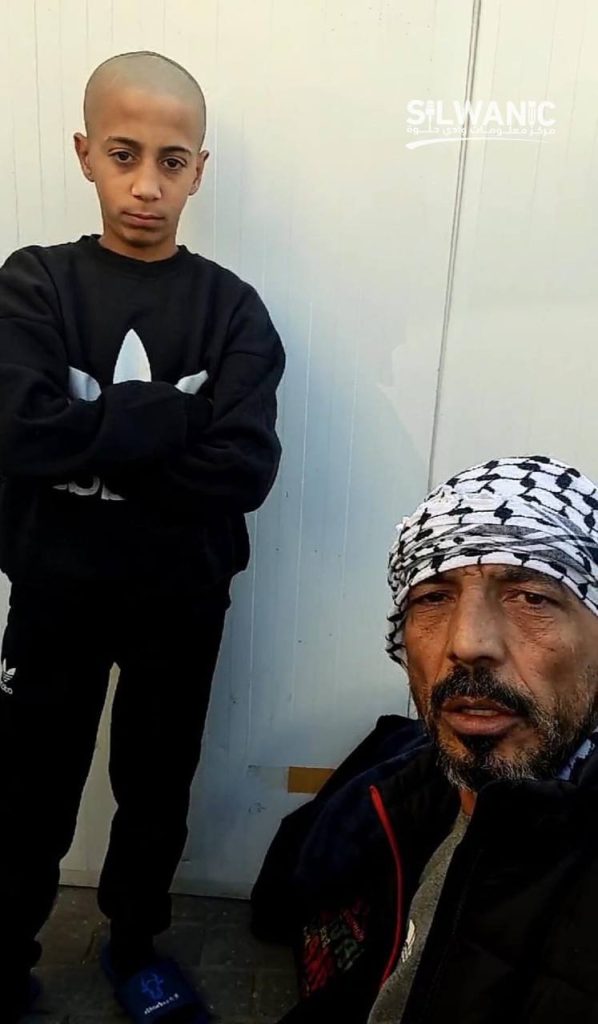
However, he also emphasized his — and the entire family’s — support and love for Ayham and for Palestine. He filmed himself with Ayham strolling through the streets of Jerusalem with pride and steadfastness before Ayham turned himself in.
“I brought him some clothes, even though he might not be allowed to take anything with him, and I took him to the restaurant he wanted to go to because he would be deprived of everything for a whole year. We would lose contact with him and I would not be able to hug him,” Nawaf said. He noted that while he (and Ayham’s brothers) had dressed him with a coat and a hat and provided extra clothing, shoes and blankets, the occupation prison administration refused to allow him to bring these warm items, even as winter approaches. Ayham shaved his head before going to prison after hearing from released prisoners about how there are no shavers or other hair grooming items allowed inside the occupation prisons.
Nawaf and the Salaymeh family’s public expression of their private solidarity, support and love for their imprisoned son Ayham is also a form of confrontation and defiance of the Zionist regime, which aims to make Palestinian families keep their children inside and out of the liberation struggle, in order to protect them from the crimes of the occupation.
In one of the videos Nawaf filmed of his last day with Ayham, he reassures his son and encourages him to understand himself as part of the Palestinian prisoners’ movement, saying: “Your brothers, friends and loved ones, every prisoner who is inside with you is your brother. They’re all like you, imprisoned for their love of the homeland. Inside, you have to stand together as one. Don’t fight with one another, take care of one another. If your friend is in need of something, you give it to him. If you’re in need of something, ask your friend for it. Your only enemy inside is the jailer, the one who locks the prison door. Every prisoner like you is your brother. You’d lay down your life for him. If there is a problem between him and the jailer or anything else, don’t fear for yourself, fear for your friend. I’m counting on you.”
“I won’t be able to see my family, but we are steadfast in Al-Quds,” Ayham said as he entered the prison for his unjust sentence. Their words encapsulate the strength and depth of the Palestinian prisoners’ movement, from generation to generation, continuing to resist, to stand steadfast in the most horrific conditions, to struggle together, and to turn the dungeons of the occupier into revolutionary schools pointing the compass toward liberation and return for all of Palestine, from the river to the sea.
Discover more from Samidoun: Palestinian Prisoner Solidarity Network
Subscribe to get the latest posts sent to your email.

